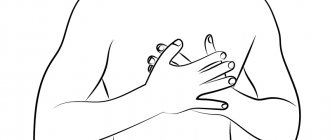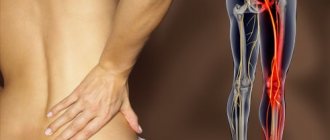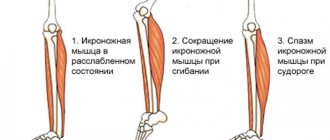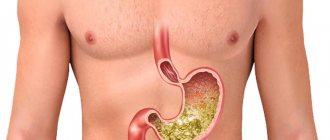Why your tongue burns: the most common reasons
Fans of spicy food know firsthand how the tongue bakes.
As soon as spicy food touches your tongue, your taste buds instantly react to the pepper. Sometimes this condition is not associated with eating peppered foods. According to statistics, about 1% of people suffer from burning mouth syndrome. This is when the tongue and oral cavity “burn” for no apparent reason. Moreover, when carrying out diagnostic procedures, doctors often shrug their shoulders without understanding the cause of such a symptom.
The most plausible explanation for burning mouth syndrome is the theory of a pathological change in the nerve endings of the tongue. Most likely, the burning sensation on the tongue in this case is a consequence of a change in the polarization of nerve cells. For reasons that are still unclear, burning tongue and oral cavity syndrome occurs 5-7 times more often in women than in men.
In most cases, doctors are still able to determine the cause of this symptom. Let's look at the most common types of diseases and conditions that cause a burning tongue:
- Diseases of the teeth and oral cavity . The most obvious reason is dental pathologies. For example, these are gingivitis, periodontitis, advanced forms of caries and others. The causes of burning and soreness of the mucous membranes of the mouth and tongue are inflammation, which occurs against the background of infection or a non-infectious inflammatory process.
- Action of chemical and physical agents . Inflammatory processes in the oral cavity develop when exposed to chemical or physical aggressive agents. For example, this is gastric juice in gastroesophageal disease, stomach ulcers or vomiting. In this case, the acidic contents of the stomach are thrown into the esophagus and oral cavity, where it has an irritating effect. Some types of treatment, such as chemotherapy or radiation, also have a negative effect on the condition of the oral mucosa.
- Fungal infection of the mouth . A common reason for a burning tongue is a fungus. Typically, this is an infection with yeast-like fungi from the genus Candida. Accordingly, this disease is called candidiasis. It is popularly known as thrush. This name is due to the characteristic external manifestations, namely, a white cheesy coating on the tongue. It is noteworthy that candida are representatives of the normal human flora. A certain amount of these fungi is always found in the mucous membranes and skin. However, as soon as the immune system fails or the balance of microflora is disturbed (for example, when taking antibiotics), the fungus begins to multiply uncontrollably. This is how thrush occurs. In rare cases, oral candidiasis occurs without a white coating on the tongue, but a burning sensation is present.
- Stomatitis . Often a burning sensation of the tongue is observed with aphthous stomatitis. This is a type of stomatitis in which rounded aphthae (or pockets of erosion) form on the tongue. Such formations appear not only on the surface of the tongue, but also on the cheeks, palate and other parts of the oral cavity.
- Allergic reaction . A burning sensation on the tip of the tongue or other parts of it is sometimes triggered by an allergic reaction. Typically, this is a reaction to a food allergen. In this case, you should be especially careful with some exotic fruits. Often it is overseas fruits that become a source of allergens.
- Medicines . The instructions for some medications state in black and white that a burning sensation in the mouth is possible as a side effect. This effect often occurs with blood pressure medications, antidepressants, sedatives, and some antibiotics.
- Diabetes . It is known that high blood sugar levels have a toxic effect on the body. First of all, blood vessels suffer (angiopathy develops) and nerve fibers (neuropathies develop). Diabetic neuropathy sometimes affects the nerve endings of the tongue, resulting in a burning sensation, changes in taste, tingling or numbness. Accordingly, such symptoms are also possible in some neurological pathologies, for example, multiple sclerosis and others.
- Glossitis . A common cause of burning sensation or pain in the tongue is glossitis. These are inflammations of the tongue that occur due to infectious and non-infectious causes. Often the cause of this symptom is the so-called “geographical tongue” or migratory glossitis. In this case, the tongue becomes covered with spots, and its external outline resembles a map of the world.
- Deficiency of vitamins and minerals . A burning sensation in the mouth is also possible due to a lack of certain vitamins and minerals, in particular B vitamins, iron or folic acid. In this case, hypovitaminosis may be caused by various diseases that prevent biologically active substances from being absorbed in the small intestine. For example, this is celiac disease, a disease in which gluten intolerance is noted.
- Other diseases . Soreness and burning in the oral cavity is also possible with some other diseases - autoimmune disorders, scarlet fever, tumors and other pathologies.
Geographic language
Types of tongue burns and their consequences
In everyday life, people more often encounter thermal burns of the tongue, which occur when drinking hot tea, coffee and food. But there are other types of burns:
- Chemical – in contact with aggressive chemicals and chemicals.
- Electrical – when the taste organ is damaged by electric shock.
- Radiation – when exposed to radiation.
Mild thermal injuries that occur without complications can be treated at home. Extensive thermal, as well as chemical, electrical and radiation burns of soft tissues in the oral cavity can lead to very dangerous consequences, and therefore should be treated under the supervision of a doctor.
In addition to temporary or irreversible loss of tongue sensitivity, impaired taste perception, burns are fraught with the development of glossitis - an infectious inflammation. Possible problems with digestion and disturbances in the functioning of internal organs. Without urgent medical care, death may occur due to blood loss, painful shock, and dysfunction of vital organs.
Risk factors
For a symptom such as burning of the tongue or mouth, it is quite difficult to determine the risk factors. Fair will be those risk factors that contribute to the development of the above-described diseases and conditions. These factors include:
- poor oral hygiene;
- untimely treatment of dental diseases;
- improper care of dentures (this contributes to the occurrence of infections);
- eating disorder;
- long-term use of antibiotics or improper use of these medications;
- long-term use of medications that regulate blood pressure;
- hereditary and acquired pathologies of the gastrointestinal tract;
- lack of control of sugar levels in diabetes mellitus types 1 and 2;
- hormonal changes, such as menopause;
- lack of preventive examinations at the dentist.
Indications and contraindications for use
The list of pathologies for which the ointment is recommended is presented:
- genital candidiasis complicated by trichomoniasis;
- dermatomycosis;
- dermatophytosis;
- mycoses complicated by infection of pyogenic cocci.
- thrush;
- some types of lichen;
- paronychia;
- superficial candidiasis;
- stomatitis;
- erythrasma.
The drug is contraindicated:
- in the first trimester of pregnancy;
- for abrasions, wounds, skin erosions;
- intolerance to component components.
Use in the second and third semesters of pregnancy requires the permission of a doctor; during lactation, it is prohibited to apply the ointment to the breast. The medicine is prescribed to newborns with restrictions:
- A small area of skin is subjected to the procedure;
- Large lesions are treated in parts.
The medication in the form of powder is prescribed to infants with an infected type of diaper rash. Treatment of fungal infections is important for pathologies that cause drying of the dermis.
Associated symptoms
This symptom manifests itself in different ways. The tip of the tongue often burns, but sometimes the entire tongue or just the base burns. Often, with a burning sensation in the mouth, other accompanying symptoms are also noted. These include sore throat, dry mouth, difficulty swallowing, the appearance of white spots on the tongue, and others. The patient may also experience tingling, tingling, or rawness in the mouth. The nature of pain can be acute or chronic. If a symptom bothers you irregularly, then it is important to understand under what circumstances it develops. For example, if your tongue begins to burn whenever you eat pineapples, mangoes or other allergenic foods, then the cause is most likely food.
How exactly to neutralize a chemical burn in the mouth?
Carbolic acid is well neutralized by glycerol.
Baking soda and water neutralize acidic compounds.
If alkali gets into your mouth, rinse the cavity with citric acid diluted in water.
If exposed to aggressive household chemicals, the mouth should be rinsed with cool running water.
It is important! Tongue burns take a long time to heal. Unfortunately, these tissues cannot be made motionless for a certain time; the tongue is constantly in motion. On average, it can take several weeks for the tongue to recover from injury.
When to see a doctor
If this is not the first time a burning sensation in the mouth has occurred, and the culprit is NOT spicy food, then this is a reason to consult a doctor. Based on the above reasons, doctors of various specialties can deal with this problem. First of all, these are therapists. A general practitioner, based on the history taken, will be able to exclude a number of pathologies and refer the patient to the right specialist. Among them are dentists, endocrinologists, infectious disease specialists, gastroenterologists and others.
Important! During the interview, the doctor should tell you about all concomitant diseases, lifestyle and medications you are taking. This information will help the doctor rule out a number of diseases and quickly identify the cause of the symptom.
Remedies for burns
How to treat a burn, and what kind of surgical assistance can be provided independently in the field or at home?
The use of creams such as Levomikol or Rescuer is guaranteed to help with minor injuries, such as briefly touching a hot pan. Dexpanthenol works very well for first degree burns. If the degree of damage is more serious, creams can only be used as a preventive measure and there is no point in relying on them.
Anti-burn products such as sprays or gels - for example, Burnshield Anti-burn Hydrogel - are more effective because they are dispersed and are better absorbed by the skin. These drugs combine two functions - anti-inflammatory and analgesic.
Buy
Buy
Buy
There is another type of treatment - special anti-burn dressings. They are recommended when the patient needs to be outdoors. Such dressings prevent dirt and dust from entering the wound.
Burning tongue: treatment methods
After diagnosing and establishing the cause of burning tongue, the doctor prescribes appropriate treatment. The extent of therapeutic intervention mainly depends on the underlying cause of the symptom. For this symptom, the following treatment options are used:
- Analgesic, symptomatic treatment . Anesthetic drugs are used for these purposes.
- Antibacterial therapy . Prescribed when a bacterial infection of the oral cavity is detected.
- Treatment at the dentist . The patient is given a set of therapeutic measures to eliminate caries, pulpitis, gingivitis, periodontitis and other dental diseases.
- Antifungal therapy . It is used for fungal infections of the oral cavity (candidiasis).
- Treatment of diabetes mellitus . Antihyperglycemic drugs are prescribed, as well as a special diet that limits the consumption of simple carbohydrates.
- Antiallergic treatment . Used for allergic reactions. The most effective way in this case is to avoid contact with the allergen. And to relieve an allergic reaction, antihistamines are used.
- Treatment of neurological and mental disorders . Depending on the root cause of the burning sensation in the mouth, the patient is prescribed antiepileptic drugs, antidepressants and other drugs that improve the functioning of the nervous system.
- Psychotherapy. Sometimes psychotherapy helps with this symptom. In particular, this works if the symptom is associated with increased stress levels or a mental health disorder.
- Other types of treatment . An individual treatment regimen is selected for each patient.
Home methods and traditional medicine
To treat this symptom, various traditional medicines are used that have a calming effect on the oral mucosa. Let's look at the most popular means:
- Rinsing with decoctions of medicinal plants . For these purposes, sage, chamomile flowers, aloe, linden flowers and other medicinal plants that have a calming effect are used.
- Rinsing the mouth with a salt solution . Salt has a mild anti-inflammatory and anti-edematous effect.
- Sucking ice cubes . This procedure will not only soothe the “burning” tongue, but also strengthen the throat.
To maintain oral health, it is important to drink enough fluids. This will avoid dry mouth and a number of problems that are associated with this circumstance (in particular, oral infections).
Treatment of a burn to the oral cavity in a child
According to statistics, a large percentage of patients who turn to a doctor for help as a result of a burn to the mouth or tongue are children. Young patients up to a year and older can unknowingly “taste” household chemicals or alcoholic drinks accidentally left on the table by their parents. Also common causes of burns are eating too hot food.
The mucous membrane of a child’s tongue is more delicate and thin, and therefore requires more delicate handling in case of a burn. For treatment, you must urgently contact a pediatric dentist.
Preventive measures
Preventive measures against a “burning” tongue include the following:
- Proper dental and oral hygiene.
- Clean your tongue daily with a special cleaner (but not with a brush!).
- Compliance with drinking regime.
- Avoiding allergens, in particular food ones.
- Controlling blood sugar levels.
- Timely treatment of the gastrointestinal tract.
- Compliance with the principles of balanced nutrition.
- Regular preventive examinations with a dentist (at least 2 times a year).
First aid and treatment
If the tongue is affected to varying degrees, proper and timely assistance should be provided:
- In the first minutes after the injury, it is necessary to rinse your mouth with cool or cold running water for 30 minutes. It is strictly forbidden to rinse your mouth after a burn with warm water. If there is no access to water. You can use a piece of ice or chilled food.
- In case of thermal injury, use antiseptics to sanitize the oral cavity.
- Take painkillers if pain occurs at the affected area.
If the pain occurs as a result of a minor burn, then a piece of ice, sugar, honey, yogurt, aloe vera, deep long breaths, menthol lozenges and chewing gums and toothpaste will help reduce it.
Treatment of thermal burn of the tongue
In case of thermal injury, a number of necessary measures should be taken:
- rinse your mouth with cold water or apply ice;
- sanitize with a weak solution of potassium permanganate, furatsilin (dilute according to instructions), hydrogen peroxide or chamomile decoction for 10-15 minutes;
- take an additional complex of vitamins for faster recovery.
If the pain does not go away, it is recommended to seek medical help.
How to treat a chemical burn
In case of injury to the tongue by certain chemical components (as in the photo below), it is necessary:
- When damaged by alkali. Rinse your mouth with acetic or citric acid, neutralize the alkali.
- In case of acid contact. Rinse your mouth with a soda solution (1 tsp per 600 ml of water). If the reagents get into the gastrointestinal tract, it is imperative to rinse the stomach and seek qualified help.
- Quicklime. It is necessary to neutralize with a 20% sugar solution.
- In case of contact with carboxylic acid, glycerin will help.
Poisonous plants and insects can also cause burns. In such cases, it is necessary to seek qualified help.
Traditional methods of treatment
It is recommended to use folk remedies only for mild burns. The most widely used are:
- Cold water . Or apply any other cold at the first manifestations of a burn.
- Sugar . Relieves pain. Take into mouth and hold until completely dissolved.
- Yogurt . Place a small amount of cold yogurt in your mouth and hold it for a while.
- Honey _ Perfectly eliminates discomfort. Keep in mouth for 5 minutes.
- Vitamin E. Accelerates the healing process and restoration of tissue structure.
- Aloe juice . relieves pain and inflammation. Should be applied to the damaged area.
- Lavender oil . Helps against pain and swelling.









